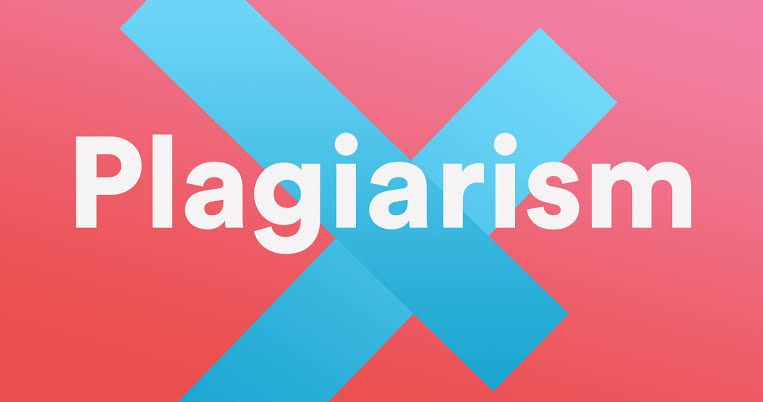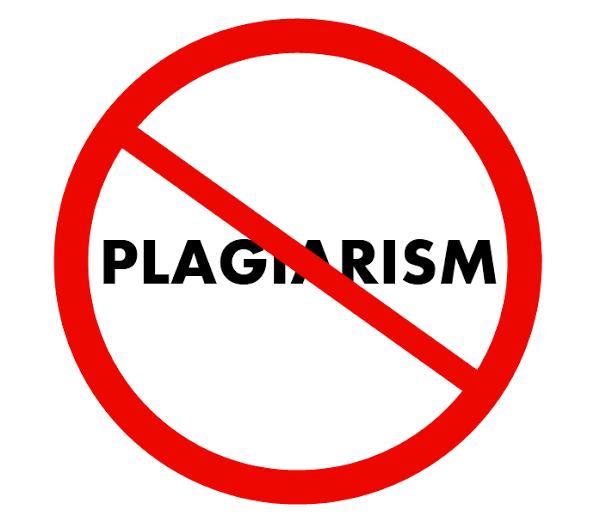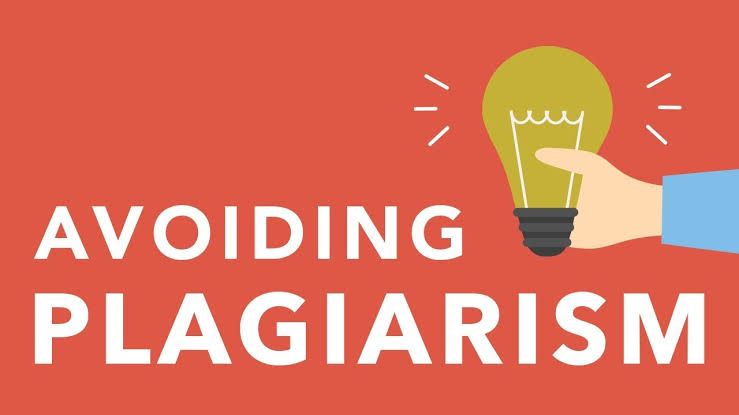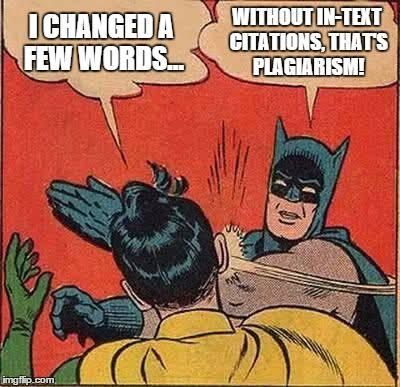COPY COPY!!!
What is Plagiarism?
Many people think of plagiarism as copying another’s work, or borrowing someone else’s original ideas. But terms like “copying” and “borrowing” can disguise the seriousness of the offense:
According to the Merriam-Webster OnLine Dictionary, to “plagiarize” means
- to steal and pass off (the ideas or words of another) as one's own
- to use (another's production) without crediting the source
- to commit literary theft
- to present as new and original an idea or product derived from an existing source
Source
According to the Oxford Student’s blog, Plagiarism is presenting someone else’s work or ideas as your own, with or without their consent, by incorporating it into your work without full acknowledgement. All published and unpublished material, whether in manuscript, printed or electronic form, is covered under this definition. Plagiarism may be intentional or reckless, or unintentional. Under the regulations for examinations, intentional or reckless plagiarism is a disciplinary offence Source Plagiarism is stealing other people’s words and ideas and passing them off as your own.
In other words, plagiarism is an act of fraud. It involves both stealing someone
else’s work and lying about it afterward.
But can words and ideas really be stolen?
According to U.S. law, the answer is yes. In the United States and many other countries, the expression of original ideas is considered
intellectual property, and is protected by copyright laws, just like original inventions. Almost all forms of expression fall under copyright protection
as long as they are recorded in some media (such as a book or a computer file).source
What can be considered plagiarism?
• turning in someone else’s work as your own
• copying words or ideas from someone else without giving credit
• failing to put a quotation in quotation marks
• giving incorrect information about the source of a quotation
• changing words but copying the sentence structure of a source without
giving credit
• copying so many words or ideas from a source that it makes up the
majority of your work, whether you give credit or not.
Attention! Changing the words of an original source is not sufficient to prevent plagiarism. If you have retained the essential idea of an original source, and have not cited it, then no matter how drastically you may have altered its context or presentation, you have still plagiarized! source.
How does plagiarism happen?
- Verbatim (word for word) :quotation without clear acknowledgment.
- Cutting and pasting from the Internet without clear acknowledgement:Information derived from the Internet must be adequately referenced and included in the bibliography. It is important to evaluate carefully all material found on the Internet, as it is less likely to have been through the same process of scholarly peer review as published sources.
- Paraphrasing: paraphrasing the work of others by altering a few words and changing their order, or by closely following the structure of their argument, is plagiarism if you do not give due acknowledgement to the author whose work you are using Source
Why does plagiarism matter?
Plagiarism is a breach of academic integrity. It is a principle of intellectual honesty that all members of the academic community should acknowledge their debt to the originators of the ideas, words, and data which form the basis for their own work. Passing off another’s work as your own is not only poor scholarship, but also means that you have failed to complete the learning process. Plagiarism is unethical and can have serious consequences for your future career; it also undermines the standards of your institution and of the degrees it issues. Source.
Why should you avoid plagiarism?
According to Dr Mark Stoner, students and writers ought to avoid plagiarism because :
- It is stealing: it is unethical to plagiarize because someone else has worked hard and should receive credit. You wouldn’t want someone else to steal your work. It is taking a property owned by someone else and by not citing the source, the person is stealing and everyone understands what it means to steal.
- It hurts you: your most important investment is yourself, so if you plagiarize, you’re cheating yourself. You don’t learn anything when you cheat and plagiarize.
- It prevents you from establishing your own ideas and opinions on a topic Source.
 pix 5
pix 5
5 ways to avoid plagiarism!!!!!
- Cite your source
- Paraphrase
- Present your own idea
- Use a plagiarism checker
- Don’t forget your reference page
Why do people plagiarize?
- Desire to get a good grade
- Fear of failing
- Lack of confidence
- Procrastination or poor time management
- Disinterest in the assignment
- Belief they will not get caught
- Confusion about what constitutes plagiarism Source.
Conclusion:
Plagiarism is a crime and should never be encouraged even if heaven is promised as a reward. For me, it is an advanced form of stealing.By copying without acknowledging someone’s work, you steal from their bucket of knowledge; their intellectual property.
Most cases of plagiarism can be avoided, however, by citing sources. Simply acknowledging that certain material has been borrowed, and providing your audience with the information necessary to find that source, is usually enough to prevent plagiarism Source.




It is not accepted anywhere, thanks for the post!
#bestkizito for blurtafrica